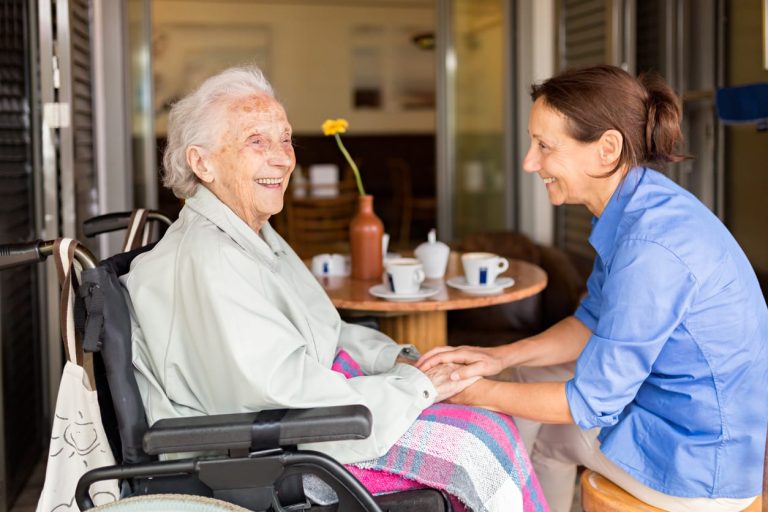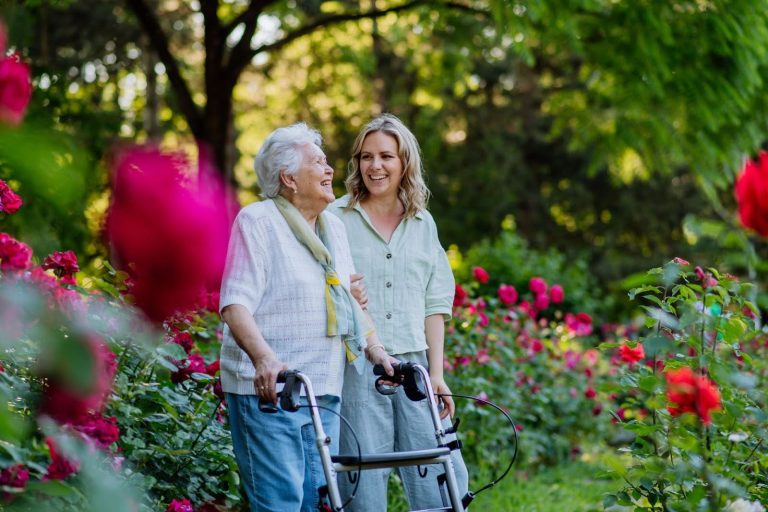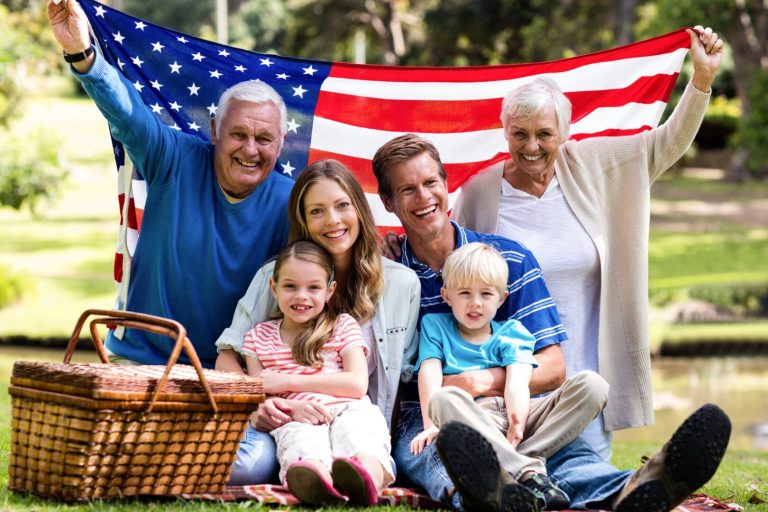Gratitude transcends generations, offering profound benefits for mental and physical well-being. Scientific insights reveal its neural pathways and "feel-good" chemicals, while personal stories highlight its impact on seniors' lives. Despite the challenges, fostering gratitude practices among seniors is essential.
Caregivers play a vital role, with tailored gratitude practices enhancing emotional well-being. The link between gratitude and relationships is explored, emphasizing its role in fortifying bonds. This article underscores the transformative potential of gratitude in enriching seniors' lives and nurturing connections.
Understanding the Power of Gratitude
Gratitude, a sentiment that transcends cultures and generations, has a profound impact on both mental and physical well-being. In recent years, scientific research has shed light on the mechanisms behind this emotion and its numerous benefits. From improving health to enhancing the quality of life for seniors, gratitude is a powerful force that holds transformative potential.
Gratitude is the healthiest of all human emotions. The more you express gratitude for what you have, the more likely you will have even more to express gratitude for.
Zig Ziglar
Explanation of the Science Behind Gratitude and Its Positive Effects on Health
The science of gratitude revolves around the brain's neural pathways and the chemicals it releases. When individuals experience gratitude, the brain releases dopamine and serotonin, often referred to as the "feel-good" neurotransmitters. These chemicals contribute to a sense of happiness, lower stress levels, and improved overall mental health.
Moreover, practicing gratitude is associated with reduced inflammation in the body. Chronic inflammation has been linked to various health issues such as cardiovascular disease, diabetes, and even certain types of cancer. By fostering gratitude, individuals can potentially mitigate these health risks and enhance their longevity.
Discussing How Gratitude Can Improve the Quality of Life for Seniors
For seniors, practicing gratitude can be particularly transformative. As people age, the loss of loved ones, declining health, and feelings of loneliness can take a toll on their mental and emotional well-being. Engaging in gratitude exercises can serve as a beacon of positivity amidst these challenges.
Gratitude has been found to enhance resilience in seniors. It allows them to focus on the aspects of life that bring joy and fulfillment, creating a buffer against negative emotions. By fostering gratitude, seniors can develop a renewed sense of purpose, improved self-esteem, and a greater appreciation for the moments they have.
Personal Anecdotes or Stories Emphasizing the Impact of Gratitude Practices
The impact of gratitude practices can be vividly illustrated through personal anecdotes and stories. Consider the story of an elderly woman who lost her spouse after decades of companionship. Overwhelmed by grief and loneliness, she stumbled upon the practice of keeping a gratitude journal. Each day, she wrote down three things she was thankful for.
Gradually, her focus shifted from her loss to the blessings she still had—a blooming garden, cherished memories, and the support of her community. Through consistent gratitude practices, she found solace and strength, ultimately rebuilding a life filled with purpose and joy.
Why Seniors May Struggle with Gratitude
Despite the evident benefits, seniors may encounter various challenges that hinder their ability to embrace gratitude.
Discussing Common Challenges Seniors Face That Can Hinder Gratitude
Physical health issues, the loss of friends and family, and feelings of isolation are some of the challenges that seniors often contend with. Chronic pain, mobility limitations, and the specter of mortality can overshadow feelings of gratitude. Additionally, the loss of lifelong partners or close friends can leave seniors grappling with profound grief.
The Importance of Addressing These Challenges as Part of Fostering Gratitude
Recognizing and addressing these challenges is paramount to fostering gratitude among seniors. Encouraging open conversations about their struggles and emotions can create a safe space for them to express their feelings. By acknowledging their pain and providing empathetic support, caregivers and loved ones can help seniors navigate these challenges and eventually find the silver linings that gratitude can offer.
Ways Caregivers Can Provide Emotional Support to Seniors
Caregivers play a crucial role in helping seniors cultivate gratitude. Listening without judgment, offering companionship, and engaging in meaningful activities together can counteract feelings of loneliness and isolation. Encouraging seniors to participate in gratitude practices, such as writing in a journal, practicing mindfulness, or simply sharing positive experiences, can foster emotional well-being and improve their overall quality of life.
Simple Gratitude Practices for Seniors
Incorporating gratitude into daily life can have transformative effects on seniors' well-being. With a multitude of benefits ranging from improved mental health to enhanced overall life satisfaction, gratitude practices offer a simple yet powerful tool for seniors to embrace positivity and find joy in their daily experiences.
Suggestions for Daily Gratitude Exercises
- Gratitude Journal: Encourage seniors to keep a gratitude journal. Each day, they can write down three things they are thankful for. These can be as simple as a beautiful sunrise, a kind gesture from a friend, or a favorite memory.
- Saying Thanks Aloud: Prompt seniors to express gratitude verbally. Encourage them to thank caregivers, family members, and friends for their support and companionship. Verbalizing gratitude not only strengthens relationships but also reinforces positive emotions.
- Reflecting on Positive Moments: Encourage seniors to take a few moments each day to reflect on positive experiences. This can be done through meditation, prayer, or simply taking a peaceful walk while focusing on the beauty around them.
Adapting Practices to Individual Abilities and Preferences
It's essential to recognize that each senior's abilities and preferences vary. For those with limited mobility, engaging in gratitude practices that involve writing or speaking may be challenging. In such cases, consider adapting the practices:
- Visual Aids: Create a visual gratitude board with pictures, mementos, or drawings representing things they are thankful for. Seniors can add to it daily, creating a tangible reminder of their blessings.
- Recorded Expressions: If writing is difficult, seniors can record short audio messages expressing gratitude. They can listen to these recordings whenever they need a boost of positivity.
- Shared Moments: Engage seniors in conversations about their favorite memories, and encourage them to relive those moments as a way of expressing gratitude for the experiences they've had.
Tips for Making Practices a Regular Part of the Day
- Set Reminders: Incorporate gratitude practices into daily routines by setting reminders or alarms. This helps seniors remember to pause and engage in these exercises.
- Pair with Activities: Encourage seniors to link gratitude practices with existing activities, such as doing them before or after meals or while enjoying a cup of tea.
- Start Small: For seniors who are new to gratitude practices, suggest starting with one exercise per day and gradually increasing the frequency as they become more comfortable.
Role of Caregivers in Promoting Gratitude
Modeling Gratitude and Encouraging Expression
Caregivers play a pivotal role in promoting gratitude among seniors. By modeling gratitude through their words and actions, caregivers create a positive atmosphere that encourages expression. Regularly expressing their own thanks and highlighting the positive aspects of life can inspire seniors to do the same.
Gratitude-Based Activities for Caregivers and Seniors
- Gratitude Walks: Take leisurely walks together, discussing the things you both appreciate in the surroundings. This not only encourages gratitude but also strengthens the bond between caregivers and seniors.
- Sharing Stories: Engage in storytelling sessions where both parties share memorable experiences and moments they're grateful for.
- Crafting Thank You Notes: Create handmade thank you cards or notes together to express appreciation to friends, family members, or healthcare providers.
Tips for Caregivers on Maintaining Their Own Gratitude Practices
Caregivers often devote significant energy to others, leaving little time for self-care. However, practicing gratitude can be beneficial for caregivers' well-being as well:
- Daily Reflection: Take a few minutes each day to reflect on things you're thankful for. This can be as simple as a quiet moment to appreciate nature or a gesture of kindness from a senior.
- Gratitude Journal: Maintain your own gratitude journal to document positive experiences and maintain a positive perspective.
- Self-Compassion: Be kind to yourself and acknowledge the challenges you face as a caregiver. Practicing self-compassion can enhance your ability to express gratitude genuinely.
The Impact of Gratitude on Relationships
Gratitude, often referred to as a universal language of appreciation, has the remarkable power to enhance relationships and foster deeper social connections. From nurturing the caregiver-senior bond to cultivating meaningful connections with loved ones, practicing gratitude can bring about positive transformations in the dynamics of relationships.
How Expressing Gratitude Can Improve Relationships and Social Connections
Expressing gratitude is like a bridge that connects individuals on a deeper emotional level. When we acknowledge the kindness, support, and efforts of others, we create a sense of validation and appreciation that goes beyond words. This simple act can strengthen bonds, build trust, and create a positive feedback loop of positivity within relationships.
Gratitude acts as a buffer against negativity, helping to diffuse conflicts and disagreements. When individuals focus on what they appreciate about each other, minor differences are put into perspective. This fosters an atmosphere of understanding, empathy, and harmony.
Moreover, practicing gratitude can lead to the formation of new relationships. People are naturally drawn to those who express appreciation and positivity. By recognizing the goodness in others, individuals radiate warmth and attract like-minded individuals, thereby expanding their social circles.
The Importance of Gratitude in Strengthening the Caregiver-Senior Bond
Caregivers play a vital role in the lives of seniors, offering not only physical assistance but also emotional support. Gratitude acts as a vital bridge between caregivers and seniors, creating a symbiotic relationship that benefits both parties.
For caregivers, receiving gratitude reaffirms their purpose and dedication. Feeling appreciated enhances their job satisfaction and motivates them to provide even better care. This sense of fulfillment can help reduce burnout and emotional exhaustion.
Seniors, on the other hand, benefit from expressing gratitude by acknowledging the care they receive. This affirmation fosters a stronger bond with caregivers, enhancing trust and comfort. A caregiver who feels valued is more likely to go the extra mile to ensure the senior's well-being, leading to a mutually beneficial cycle of care and appreciation.
Encouraging Seniors to Express Gratitude to Their Loved Ones
As seniors navigate the various stages of life, encouraging them to express gratitude to their loved ones can be a powerful way to strengthen relationships and create lasting memories.
- Reflect on Memories: Encourage seniors to reminisce about cherished memories and share stories of their experiences. Expressing gratitude for the moments they've shared with loved ones can evoke feelings of joy and nostalgia.
- Communicate Openly: Encourage seniors to openly express their feelings of appreciation and love. This can be through verbal communication, handwritten notes, or even creative outlets like artwork or music.
- Family Gatherings: Family gatherings provide an excellent opportunity for seniors to express gratitude collectively. Whether it's a birthday, holiday, or any special occasion, seniors can take a moment to express their thanks for the presence and support of their loved ones.
In a world that transcends time and generations, gratitude stands as a catalyst for mental and physical well-being. As we unveil its neural underpinnings and share stories of its impact on seniors, the significance of fostering gratitude becomes clear. Caregivers, pivotal in this journey, tailor practices to bolster emotional well-being. Exploring gratitude's role in relationships underscores its ability to fortify bonds. This exploration illuminates the potential for gratitude to elevate seniors' lives and forge enduring connections. Through the simple act of gratitude, we unlock a force that enriches lives and strengthens the ties that bind us.





